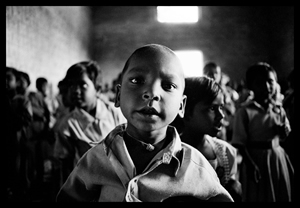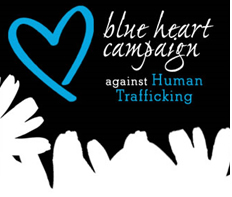
Human trafficking, a form of modern day slavery, is growing.
It’s growing across the globe. It’s growing across the United States. Now, it’s growing locally. Recent news reports confirm its arrival in the Inland Empire and Southwest Riverside.
As an immigration lawyer whose practice takes me into various regional communities, I sensed its growing presence based on tell-tale signs a few months ago.
According to law enforcement officials, a recent murder in Moreno Valley was linked to this trend. The individual, a victim of trafficking, was killed as he tried to escape his captors.
Immigration and Customs Enforcement (ICE) agents believe traffickers are moving the center of their trafficking operations from Los Angeles to remote areas in the Inland Empire to avoid detection. As a result of this shift, various Riverside and San Bernardino communities may soon experience an increase in trafficking-related crimes of violence.
Law enforcement agencies, local, state, and national, cannot win the fight againt them alone. Your participation is needed.
What Is Human Trafficking?
Human trafficking, as defined by the United Nations, is the process by which a person is recruited to be controlled and held captive for the purpose of exploitation.
Normally, it involves the use of coercion, deception, or force to place men, women, and children in slavery or slavery-like conditions.
Exact statistics are impossible to compile. However, estimates show why national and international teamwork is necessary to combat the problem:
– Trafficking, a nine billion dollar industry, is the fastest growing criminal enterprise
– Worldwide approximately 27 million people are enslaved
– 14,500 to 17,500 immigrants are trafficked into the U.S. per year. Of this total, 70% are women, 50% are children
– Just in Los Angeles alone, about 10,000 females, adults and children, are hostages of underground brothels and prostitution rings.
Other common types of forced labor includes working is assembly sweatshops, making and sewing clothes, growing food for exports, cleaning homes, and providing childcare for the families of thier slaveholders.
DHS Launches Anti-Trafficking Campaign
The Department of Homeland Security, acknowledging the growth of human smuggling, recently announced a new program to help fight trafficking.

The DHS inititative – named the Blue Campaign – takes a three-prong approach: (1) increased public awareness, (2) improved victim assistance , and (3) enhanced law enforcement training and coordination.
As an immigration attorney in Southern California who has witnessed the effects of the physical and emotional abuse inflicted on trafficking victims, I applaud the action taken by the Department of Homeland Security.
Janet Napolitano, the DHS Secretary at the founding of the Blue Campaign, emphasized, “The battle against human trafficking is a shared responsibility involving the Department’s federal, state, local and tribal law enforcement partners, non-profit and non-governmental organizations, governments around the world and communities across the nation.”
Why Can’t Trafficking Victims Escape?
As a Riverside immigration attorney who has helped victims of trafficking, I’ve learned there are two main reasons why they do not simply leave their captors.
First, many victims fear for their safety, and the safety of family members, if they leave. Traffickers are linked across borders. Victims are aware that traffickers’ connections can lead to retaliation.
Second, most victims have nowhere to turn. They lack relatives or friends in the U.S. They lack English skills. They lack money. They lack legal immigration documents.
In short, fear and hopelessness keeps them obedient to traffickers.
For a more complete discussion of factors and fears that prevent victims from leaving their victimizers, see: The Global War Against Human Trafficking.
Legal Protections For Trafficking Victims
Although legal help, alone, is not enough – as I have learned through difficult San Bernardino immigration attorney cases – it is an important part of the solution.
In the United States, there are various forms of special immigration programs that offer much-need help for trafficking victims.
Since the requirements are strict, and evidence is difficult to obtain, the help of qualified legal counsel is critical for victims.
The T Visa
In October 2000, as part of the Victims of Trafficking and Violence Protection Act, Congress created the T nonimmigration status. It is commonly referred to as the T visa program.
To win a T visa, the person seeking its benefits must:
- Be or have been a victim of a “severe form” of trafficking in persons
- Have cooperated with law enforcement investigation or prosecution about trafficking
- Be likely to suffer extreme hardship involving unusual and extreme harm if he or she is deported
Under T nonimmigrant status, victims of a severe form of human trafficking are allowed to remain in the United States for up to four years and are eligible to receive work authorization and various state and federal benefits.
A victim’s parents, children, as well as unmarried brothers and sisters under 18 may also be eligible for T visa status if they are in danger of retailiation due to a victim’s escape from trafficking or cooperation with law enforcement.
Moreover, if they meet various requirements, T visa grantees are eligible for lawful permanent residence after 3 years in T status or once the investigation or prosecution of the trafficking is completed, whichever occurs earlier.
The U Visa
Although not specifically a visa for trafficking victims, the U visa is another avenue of protection for those who have endured the horrors of modern day slavery and abuse.
Like the T visa, the U nonimmigrant status was given birth by 2000 Victims of Trafficking and Violence Protection Act.
The U visa was passed to protect victims of a broad range of crimes (not just trafficking) who have suffered mental or physical abuse and assisted law enforcement or government officials in the investigation or prosecution of criminal activity.
To qualify for a U visa, the four requirements are that the person seeking the visa must:
- Be a victim of “certain criminal activity”
- Have information about this crime
- Be willing to cooperation with law enforcement in investigation or prosecution
- Have suffered physical or psychological trauma
Similar to T visa recipients, U visa grantees are also allowed to seek derivative benefits for certain family members.
In addition, immigrants who have won U visa status are likewise entitled to permanent residence if they meet certain requirements.
The S Visa
A third protective possibility for victims of trafficking is the S nonimmigrant visa.
The S visa is a special visa available to individuals who have assisted law enforcement as a witness or informant in a criminal investigation or prosecution.
A federal or state law enforcement agency or a U.S. Attorney’s office may submit an application for a green card on behalf of a witness or informant when the person has completed the terms and conditions of their S classification.
Qualifying family members of the principal S nonimmigrant may also be eligible for permanent resident status.
Human Trafficking Awareness: The First Step In The War Against Modern Day Slavery In The Inland Empire
Ultimately, as a crime against humanity, trafficking is an insult to all of us. And it will take all of us to defeat it.
In many instances, the lives of trafficking victims are closer to us than we imagine.
Yet, there are clues. But due to our unfamiliarity with the indicators, victims remain invisible to us.
With the guidance of the Blue Campaign, we will hopefully learn to spot the tell-tale signs. And in the process, together we can start to slam the door shut on human slavery.
Ultimately, the war against human trafficking cannot succeed without my contributions.
Nor without yours.
By Carlos Batara, Immigration Law, Policy, And Politics




